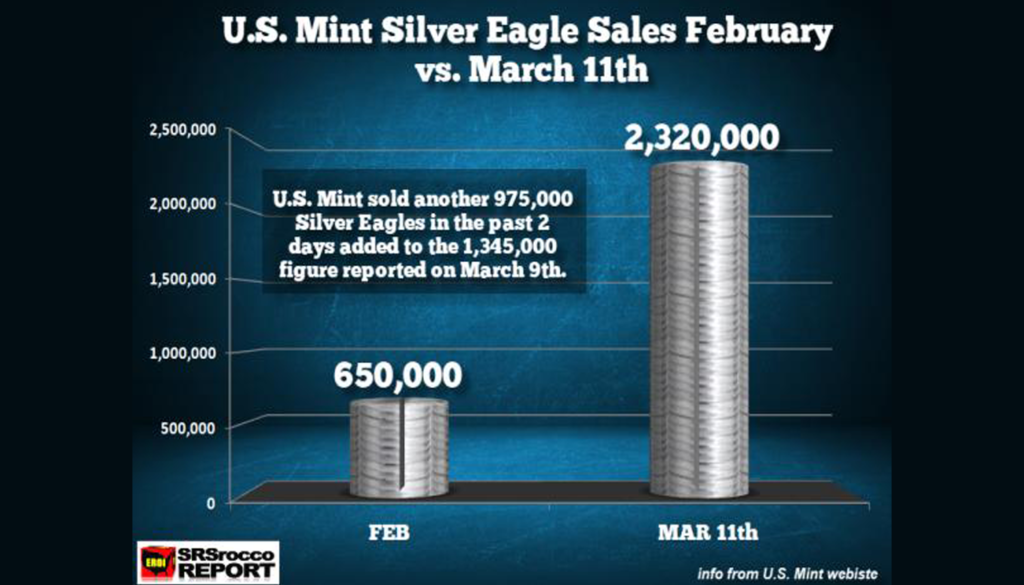Three predictions: The first because we know how the money business works – though we do not have proof to hand. The second we are certain will happen – because it has long been the obvious step, and because those most directly affected by it, and who stand to benefit most from it, have been howling loudest at the mere suggestion. The third, because we would certainly consider doing it if we were in charge.
All three of our predictions, to the extent they ever come up for public discussion, are loudly discounted by industry pundits, or attacked as vicious assaults on free enterprise, or dismissed as preposterous.
1. More money laundering
First, we predict that major U.S. banks will be accused of extensive money laundering activities. Banks on U.S. soil swim in the same polluted waters as their global counterparts, and money laundering is part of the environment. We predict there will soon be serious charges of money laundering brought against major U.S. financial institutions.
Global commercial banks process such an immense flow of transactions that it is inescapable that some illicit funds should slip through their risk management nets. The job of a global banker is to sell money, no less than the job of the stockbroker is to push stocks, and one of the best ways to launder large sums of cash is to get your local bank to write you a line of credit against it, then take that line and post it as collateral for your loan from a major U.S. money center institution.
The banks will argue that cash is fungible, and it is unrealistic to expect them to trace every dollar to its source. But Congress has the ability to require financial institutions to verify the bona fides of every cent they process. Oh, wait… they already did that. It’s called the USA PATRIOT Act, and it requires financial institutions to undertake exhaustive checks to identify the ultimate owners of assets and ensure they do not take in funds that are the proceeds of illegal activities. You will be relieved to know that these steps have actually been implemented. In order for a financial institution to be in compliance with the PATRIOT Act, it must verify that all funds transferred in or out only come from or go to a major money center bank. Brokerage firms, for example, are entitled to rely on the fact that a major international bank is required to have iron-clad procedures to prevent money laundering, and may thus accept wires from such banks without further anti money laundering (AML) checks. Banks that qualify for such reliance would include HSBC and Standard Chartered. Do you now feel safe from the global reach of terror?
MORE: London bankers on Standard Chartered: Everyone does it
Note too that risk management costs money. And businesses weigh cost centers, not versus standards of Right and Wrong, but versus the dollar cost of not engaging in the activity. Money laundering is associated with many major banks’ international profit-making activities – from loan portfolios to project finance. Therefore the calculation to deploy an AML function is simple arithmetic: What does it cost to hire and support an AML department? What is the volume of legitimate business that will be impeded or lost as a result of internal AML oversight? What is the likelihood of money laundering activities actually being found out by a regulator or law enforcement? If found, what is the likely cost to settle with said regulator or law enforcement? The result of the calculation: money laundering is very good business, and the risks are inconsequential.
2. Bank break-ups
Our second prediction is that the banks will break up. Not that they will be broken up. The banks will move strategically to divest, spin off and slice and dice their business – it is by now an overdue business decision, and firms such as Goldman Sachs (GS) have already made steps in that direction.
Public awareness of trends in business is among the most lagging of lagging indicators. Even when they are hit over the head, most folks don’t get it. Witness the reaction to comments made by former Citi CEO Sanford Weill that the banks should be broken up. The Wall Street Journal – folks who should know better – wrote Weill “now believes it was a mistake to scrap the Glass-Steagall separation of commercial and investment banking.” Mischaracterization of Weill’s remarks may sell newspapers, but it fails utterly to clarify the debate. The New York Times quotes legendary former Bear Stearns CEO Ace Greenberg as saying “this was not Sandy,” though it is not clear that Greenberg actually saw the conversation or if, like the rest of us mere readers, he was given out-of-context quotes.
Weill certainly did not say he “regretted” scrapping Glass-Steagall to create Citigroup (C). Quite the opposite. Responding to CNBC’s Andrew Ross Sorkin, Weill said he believed his formula was right for its time, but that times have changed and a new formula should prevail (Full disclosure: Hedgeye CEO, Keith McCullough, is a contributor and guest host on CNBC, and other Hedgeye analysts are featured guests from time to time.)
MORE: Most dangerous words in finance: “This time it’s different.”
Weill is obviously right. The banks are not merely too big to fail – which is a public policy problem. They are too big to manage efficiently, which is a profitability problem. Take the lesson from the hedge fund industry, where many of the most successful managers are returning cash to their investors because their funds have grown unwieldy. There is an optimal size to every type of financial institution, and the lesson of the London Whale is that even Jamie Dimon may have hit his limit. Where Blankfein and Weill lead the way, can the likes of Dimon be far behind? Look for a new structure to emerge.
Weill points to the undermining of public confidence in the financial markets as a compelling point in favor of separating deposit taking from risk taking. Too, the implementation of the Volcker Rule will be unbelievably messy, and smart bankers will make a clean break early. The few Wall Street executives with long memories are often the most successful. This should not be confused with bankers’ concern with their reputations. Bank executives realize that their industry cycles in and out of favor with the public and they need to keep step with that sentiment in order to stay liquid. Lloyd Blankfein may brush off being called a “giant face-sucking vampire squid,” but he will act swiftly to keep the markets relying on Goldman as counterparty.
The move will come – Weill’s CNBC appearance was the trial balloon and grants permission to the industry – all the screams and outrage of Wall Street execs pushing back against a reintroduction of Glass-Steagall is just so much “don’t throw me in the briar patch.” They will break up their institutions in their own good time, on their own plan, and will suck out every penny of profit in the process. You can’t count on Congress to act in the public interest – but when it comes to predictability, you can bet on Wall Street to capitalize on an opportunity.
3. Dividend cuts
Finally, our third prediction is that major corporations will cut their dividends.
The Financial Times says equities are edging out bonds: A “survey of 52 institutional investors showed a shift towards high-yield bonds and high-dividend equities, together with real estate and infrastructure, alongside investment grade corporate credit in both developed and emerging markets.” This contrasts with PIMCO’s Bill Gross, who proclaimed the Death of Equities – a phrase that resonates on Wall Street ever since the famous August 1979 Business Week cover story of that title which came on the eve of the greatest prolonged bull market of the century.
Gross says “the 6.6% historical real return from stocks” comes from “skimming 3% off the top.” Here’s his argument: GDP growth is only 3.5%, but your return is 6.6%, meaning you are reaping over 3% phantom return. The losers, says Gross, are lenders, labor, and government. To anyone who has seen bond covenants canceled, been laid off from their job, or seen their taxes go up, this is a compelling argument.
These stories are competing for head space in the press – and while logic dictates that equities can’t be both dead and in favor at the same time, that is also, as our dear departed Dad used to say, what makes horse racing.
MORE: Should we listen to a bond king trying to time stocks?
But there is a darker horse in this race — feckless U.S. policy which continues to prolong the Death of the Dollar. Those in Congress pushing to audit the Fed may have a point. But we think the Fed should push for an audit of Congress. Bernanke has been given a limited toolkit and instructed to fix what all of Congress and the White House combined can not even begin to address. Armed with only a hammer and straightedge, Bernanke has to figure out how to cut, drill, screw, bevel, plane, level, miter and join an economy that is maliciously neglected by those most responsible for its welfare. Congress’s job is to enact responsible fiscal policies, then to empower the Fed to draw the reins now to this side, now that, to keep the horses in the middle of the path.
Instead, Washington has abdicated its responsibility, in the face of which no amount of Fed soldiering can strengthen the dollar. Corporate America is not dumb. In an environment where the Risk Free investment can allow itself to sell at a negative return, even after allowing its rating to be cut from AAA to AA, why should AAA companies knock themselves out to beat the yield on Treasurys? Should corporate America dole out its cash when neither the government nor the banks will? Look at IBM yielding almost 3.5% and ask yourself: “Why?”
If you oversee managed equity funds, or retail brokerage accounts, you should be sensitive to outlier events. All it takes is one major listed company to announce they believe it prudent to husband their resources, given the uncertainty of the environment. The stock will take a temporary hit, but they’ll tough it out. And all of a sudden, all those “prudent” blue chip portfolios will turn into customer lawsuits.
These kind of tumultuous changes are like getting pickles out of a jar. That first one is so hard to get. But once it comes out, the rest just keep spilling and spilling and spilling…
Fortune – August 16, 2012






